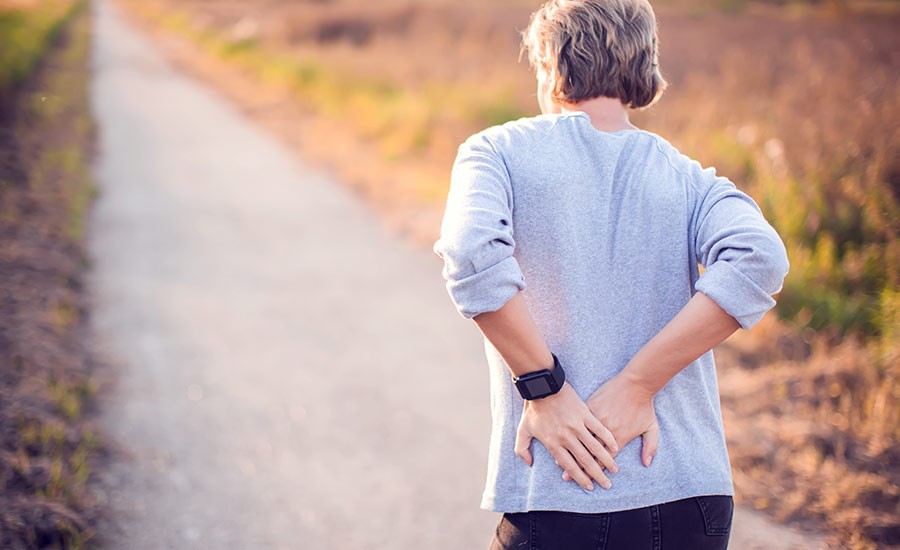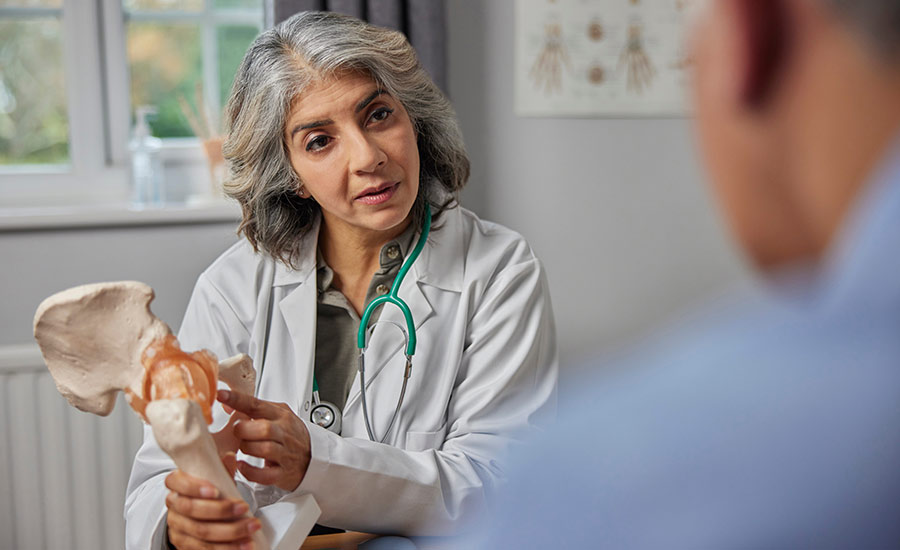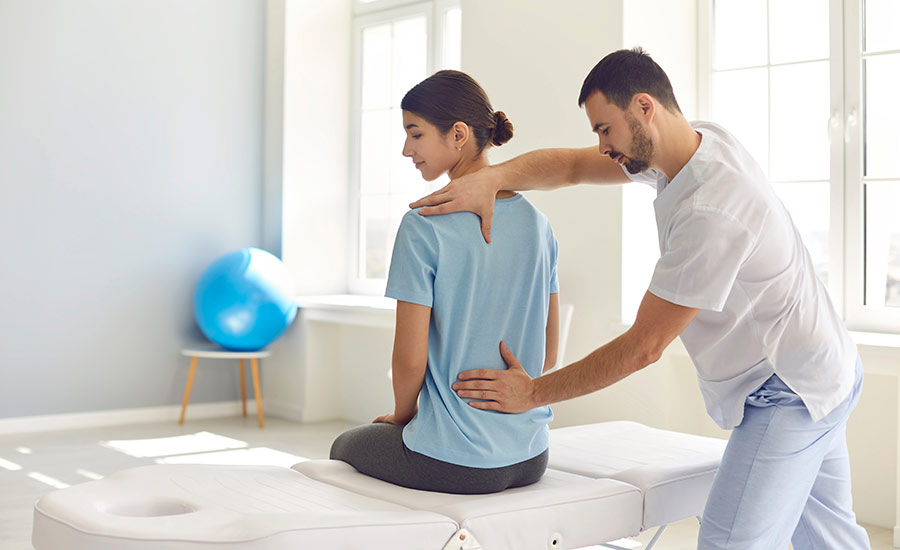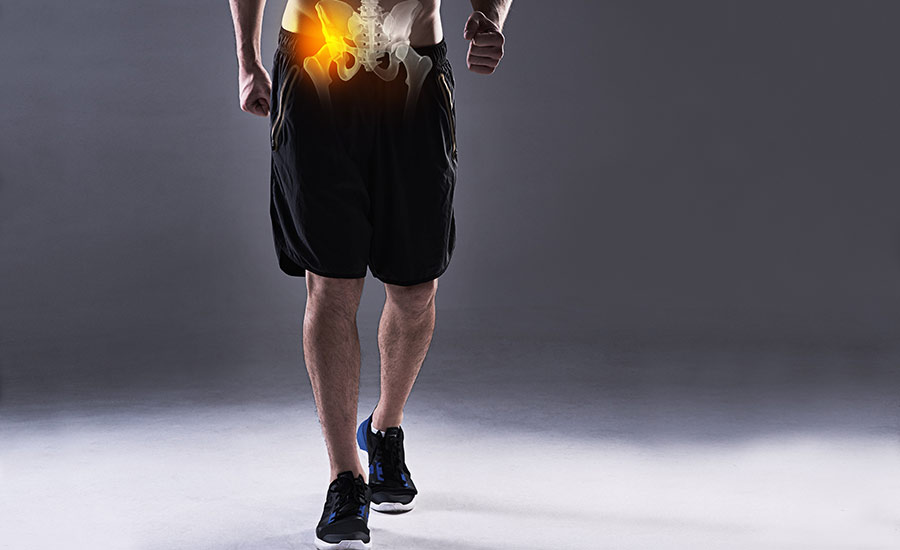
Each step you take should be a stride toward your destination, not a reminder of pain.
However, for many, a simple walk transforms into a journey of discomfort due to hip pain.
Are you suffering from hip pain? We’ll explain the most common causes, and the effective treatment options we offer at OrthoEast.
What Causes Hip Pain When Walking?
Aging, underlying medical conditions, or specific injuries can contribute to hip pain when walking.
The most common causes of this pain include:
Osteoarthritis
Osteoarthritis (OA) is a degenerative joint condition in which the ends of bones in your joints deteriorate over time. Adults over the age of 55 are mainly affected by this condition, as bones naturally lose density and become more porous with time.
Symptoms of osteoarthritis include joint stiffness after prolonged inactivity, pain that worsens with activities and eases with rest, reduced range of motion and a crunching sensation
Bursitis
Bursitis is the inflammation of the bursae, which are small, fluid-filled sacs that cushion the bones, tendons and muscles around the hip joint. Hip bursitis often arises due to repetitive motions, such as frequently climbing stairs or prolonged standing, or from a sudden injury like a direct fall onto the hip.
Symptoms of bursitis are sharp pain on the outside of the hip, pain intensifying after prolonged sitting or lying on the affected side, swelling or tenderness.
Tendinitis
Tendinitis in the hip results from the inflammation of tendons, which are thick cords that attach muscles to bones. It’s usually caused by repetitive stress from overuse, leading to pain and tenderness. Runners and cyclists frequently experience tendinitis.
Symptoms of tendinitis are pain and tenderness where the tendon attaches to the bone and pain worsening with activity.
Hip Labral Tear
A hip labral tear is a specific type of injury to the hip’s labrum, where the cartilage either frays or tears. It‘s mostly caused by direct injuries, such as a fall or a blow to the hip.
Symptoms of hip labral tear are clicking or catching sensation in the hip, pain or stiffness.
Stress Fractures
Stress fractures in the hip are tiny breaks in the bone, often caused by repetitive force or overuse, such as long-distance running.
Early symptoms might include pain during or after activity, which can progress to pain even when resting, if left untreated timely diagnosis and treatment are essential to prevent complications.
Hip Flexor Strain
The hip flexors are a group of muscles at the front of the hip, which support knee lifting and bending at the waist. A strain in these muscles can result from overuse, sudden movements, or failure to warm up before exercise and is typically not a long-term ailment.
Symptoms of hip flexor strain are pain, swelling and difficulty moving the hip.
Hip Impingement
Also known as femoroacetabular impingement (FAI), this condition occurs when there’s an abnormal contact between the ball and socket of the hip joint, leading to pain and limited movement. Over time, it can cause damage to the joint.
Research shows that FAI may be a factor in the development of early osteoarthritis in some people. Symptoms of hip impingement are groin pain, limited range of motion or stiffness.
Hip Dysplasia
Hip dysplasia is a condition in which the hip socket doesn’t fully cover the ball portion of the upper thighbone, leading to an increased risk of joint dislocation. It’s usually a congenital condition, meaning it’s present at birth. Symptoms of hip dysplasia include reduced motion, limping when walking or one leg might be longer than the other.
Sciatica
While not exclusive to the hip, sciatica refers to pain radiating along the path of the sciatic nerve, which branches from the lower back through the hips, buttocks and down each leg. This pain is often caused by a herniated disc, bone spur, or spinal stenosis compressing part of the nerve.
Symptoms of sciatica are inflammation, pain and often some numbness in the affected leg.
How Is Hip Pain While Walking Treated?
Treatment for hip pain while walking depends on the underlying cause of the pain. While some pain may be managed with conservative treatments like rest and ice, others may require a surgical approach. The most common treatment methods for hip pain are:
Rest and Activity Modification
One of the first lines of treatment for hip pain is simply allowing the affected area to heal. This means refraining from activities that aggravate the pain — especially if the pain is due to overuse or a minor injury. Low-impact exercises like swimming can help reduce stress on the hip joint while keeping the body active.
Physical Therapy
Physical therapy can be instrumental in treating hip pain. Therapists use a combination of exercises, stretches, and manual techniques to improve range of motion, strengthen muscles surrounding the hip and reduce pain. They can also advise on proper posture and movement techniques to avoid future injuries or strain.
Hot and Cold Therapy
Hot and cold therapy can help reduce inflammation and relieve pain. Cold packs can reduce inflammation and numb the area, which can be particularly useful immediately after an injury. Heat pads or warm baths can relax and loosen tissues and stimulate blood flow to the area. Avoid placing heat or cold directly on your skin, as this can lead to burns or frostbite.
Injections
For persistent hip pain, treatment can include corticosteroids, which reduce inflammation and pain, or hyaluronic acid, which lubricates the joint. Injections can provide temporary relief, and the duration of their effectiveness varies depending on the type of injection and your condition.
While some people might experience relief for several months, others may only have relief for a few weeks. The number of injections required varies based on the individual’s response and the nature of their condition. Some might benefit from a single injection, while others might need repeated injections over time.
Over-the-counter Pain Relievers
Non-prescription pain relievers like ibuprofen, naproxen, or acetaminophen can help reduce pain and inflammation. They should be taken as directed and not for extended periods unless prescribed by a doctor, as long-term use can lead to potential side effects like gastrointestinal issues or liver damage.
Surgery
If conservative treatments are ineffective or if hip damage is severe, an orthopedic specialist might suggest surgical intervention. Options can range from minimally invasive arthroscopic procedures to more significant surgeries like hip replacement surgery. The type of surgery depends on the underlying cause of the pain, your age, health, and activity level.

When To See a Hip Specialist if Your Hips Hurt After Walking
If you are experiencing hip pain after walking that is ongoing or severe, it can be an indication of a serious issue that could require medical intervention.
You should see a hip specialist if you’re experiencing:
- Persistent pain: If the discomfort or pain in your hip doesn’t improve after a few days of rest, ice, and over-the-counter pain relievers, it’s time to see a healthcare professional.
- Intense pain: Sudden or severe pain that wakes you up at night or prevents you from walking warrants immediate medical attention.
- Swelling or bruising: Unexplained swelling, redness, warmth, or significant bruising around the hip area can be indicative of an injury or inflammation that needs evaluation.
- Limited range of motion: Difficulty moving your hip, stiffness, or a decreased range of motion should be addressed by a specialist.
- Sounds when walking: If you notice clicking, popping, or grinding noises when moving your hip, it could be a sign of a joint or structural issue.
- Walking difficulties: If you are limping or you can’t bear weight on one side, seek medical advice as soon as possible.
- Previous injuries: If you’ve had previous hip injuries or surgeries and are experiencing new or recurring pain, consult with a specialist.
- Additional symptoms: Accompanying symptoms like a fever, unexplained weight loss or general malaise combined with hip pain can be signs of a more systemic issue and should be professionally evaluated.
If you’re in doubt about the severity or cause of your hip pain after walking, consult with a healthcare professional. They can provide a thorough evaluation and proper diagnosis, then recommend the best course of action for pain relief.

Hip Injury Treatment at OrthoEast
OrthoEast is a premier destination for world-class orthopedic care with a team of board-certified specialists who offer personalized care.
If you are experiencing hip pain that is not responding to conservative treatments, our team will help you determine the right alternative approach to treatment. Our orthopedic surgeons specialize in:
- Hip replacement surgery
- Hip preservation
- Hip arthroscopy
- Hip dysplasia treatment
Our hip specialists at OrthoEast offer a conservative-first approach to treatment and diagnostics. All of our specialists are fellowship-trained and board-certified in orthopedic care and offer a personalized approach to every patient.
Our hip specialists include Dr. Craig Wright, Dr. Casey Pierce, Dr. William Matarese, Dr. Anthony Scillia and Dr. Thomas Novack, who focus on hip pain relief and improving each patient’s quality of life.
We’ll work together to find the root cause of your pain and determine the best option to help you find long-term pain relief.
Find us at one of our locations in New Jersey or New York to schedule a consultation. Meet our physicians, discover the treatment plan that’s right for you and find lasting pain relief.
How To Prevent Hip Pain When Walking
By adopting a proactive approach and making mindful choices in daily activities and routines, you can significantly reduce the risk of experiencing hip pain when walking if you:
- Maintain a healthy weight: Excess weight puts additional stress on your joints, including your hips. By keeping your weight within a healthy range, you reduce the strain on your hips and lower the risk of conditions like osteoarthritis.
- Wear supportive footwear: Shoes that provide good arch support and cushioning can distribute weight evenly and reduce the impact on your hips. Try to avoid wearing high heels or shoes that do not offer adequate support for extended periods.
- Strengthen your hip muscles: Regularly engaging in exercises that target your hip muscles can help stabilize the joint and reduce the risk of injury. Perform exercises such as clamshells, bridges and lunges to strengthen your muscles.
- Warm-up before activities: Always take time to warm up before engaging in physical activity. Gentle stretching and aerobic activities like walking or cycling can prepare your muscles and joints for more strenuous activities and reduce the risk of strains or sprains.
- Try flexibility training: Flexibility exercises like yoga or Pilates can help maintain your range of motion in the hip joint. Regular stretching can also alleviate tightness and reduce the risk of injuries.
- Practice good posture: Whether sitting, standing, or walking, maintaining good posture ensures that weight and force are distributed evenly across your body.
- Modify activities: Listen to your body. If you experience pain or discomfort during certain activities, consider modifying the activity or taking breaks to prevent further injury.
- Schedule regular check-ups: Consulting with a healthcare professional or physical therapist regularly can help catch potential issues early on. You can get guidance on exercise routines, footwear recommendations, and other preventive measures tailored to your needs.



